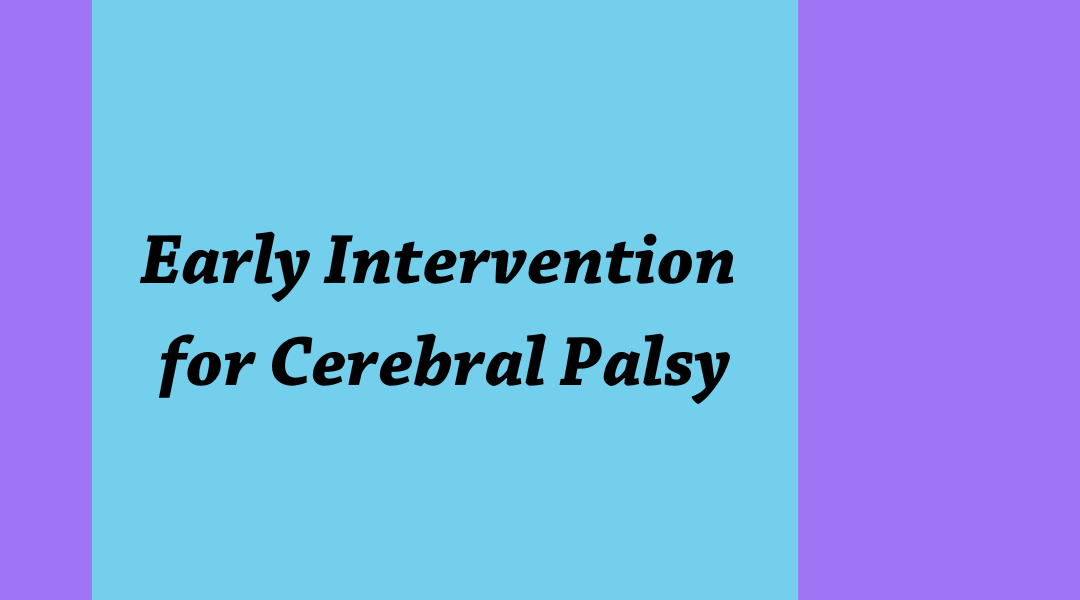Early intervention is important to the development of kiddos with cerebral palsy (CP). Today we will dive into what cerebral palsy and early intervention are. We’ll also discuss why early intervention is so crucial to kiddos.
What is Cerebral Palsy?
Cerebral palsy is a group of neurological disorders that impact movement and coordination. CP is caused by damage to the brain, often during birth but sometimes it occurs in early childhood. CP affects people differently based on their Gross Motor Function Classification System (GMFCS). Some kiddos experience mild symptoms. Others have more severe symptoms that impact their ability to walk, talk, and perform their daily activities.
What is Early Intervention?
Early intervention is a descriptor for the support and services provided to children with developmental delays or disabilities at a young age.
The goal is to identify developmental delays as early as possible. The sooner support and services can be provided to help the kiddo, the better.
For kiddos with CP, these support efforts can help improve their development and reduce the impact on their daily life.
Early intervention is typically carried out by a team of healthcare professionals, including developmental specialists, OTs, PTs, and speech therapists.
The team works together to provide personalized care for the child.
When Should Early Intervention Begin?
Early intervention should begin as soon as possible. In many cases, CP is diagnosed in the first 2-3 years of life. Early intervention can begin immediately upon diagnosis.
However, even if a child is not diagnosed with CP until later, early intervention can still provide significant benefits.
How Does Early Intervention Help Children with CP?
Early intervention can provide a large variety of benefits for kiddos with CP. Some of biggest benefits are:
Improving Motor Skills: Physical therapy is important for children with CP. PTs work with kids to improve their motor skills, such as sitting, standing, walking, and using their hands.
These skills are essential for performing daily life activities. Increasing the use of motor skills also creates so many health benefits – many of which help the kiddo avoid hospital visits, surgery and various other complications.
Addressing Behavioral Issues: Some kiddos with CP may have behavioral issues. Common behavioral issues include difficulty with social interactions and/or sensory processing. OTs work with children to develop strategies to help them manage these behaviors.
Enhancing Communication Skills: Many children with CP have difficulty with speech. Speech therapists work with the kiddos to improve their communication skills, such as speaking, understanding languagea and nonverbal communication.
Early intervention may also include support and resources for families of kiddos with CP. Support may include education, training on how to care for their kiddo, and support for their own emotional and mental health.
Learn More About Trexo Home
Trexo Home is a robotic gait trainer for kiddos with lower body mobility challenges. Learn how Trexo Home gets kiddos upright and walking, regardless of their current abilities.


Recent Comments